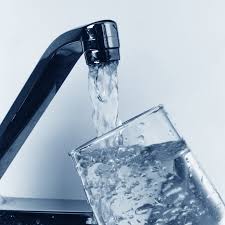Lead in Drinking Water
Health Effects and Solutions
for Removal
by Nancy Hearn, CNC
Note: As an Amazon Associate I earn from qualifying purchases.
Health problems associated with lead in drinking water are serious, and any indication of the presence of lead in your water should be dealt with right away.
Nearly every cell and organ in the body can be negatively affected by even small amounts of lead exposure.
Just a few of the known health effects of lead exposure for adults include high blood pressure, nerve disorders, kidney dysfunction, fertility issues, and vision problems.
The greater risk is for pregnant women and young children. Small levels of lead in the bloodstream of pregnant mothers has been linked with stunted fetal growth.
In children, microscopic levels of lead in the blood have been associated with numerous health and developmental problems including: slow bone growth, lower IQ scores, hearing loss, weight gain, cognitive impairment, delays in puberty and an increase in behavioral issues and ADHD.
Lead in Drinking Water
Lead is a heavy metal that is found in the soil, the air and the water we drink. Prior to the 1980s, lead was used abundantly in products such as leaded gasoline and lead-based paint, until state and federal laws were passed to remove lead.
However, high levels of lead are still being dumped into our environment though industrial sources, such as mining facilities, which then ends up in the water supply in the surrounding areas.
In addition, lead can also end up in our drinking water from the corrosion of metal in the service pipes from water treatment facilities to our homes.
Or if you live in a home that was built before 1986, you may have lead piping. The problem comes mainly from brass or chrome-plated brass fixtures that contain lead solder.
According to the EPA, several factors contribute to the likelihood of lead in your drinking water as a result of corrosion.
Just a few of the causes of higher incidence of corrosion include (1) low mineral content in water, which creates higher acidity, (2) a lack of protective coating on plumbing pipes, (3) older pipes and (4) higher water temperature.
According to the EPA, since we cannot taste, see or smell lead dissolved in water, the only sure way of knowing if it is in our drinking water is to test for it.
You can get a list of certified laboratories from your state or local drinking water authority or purchase a water quality test online.
Testing usually costs between $20 and $100.
Solutions
The best solutions for removing lead in drinking water in your home might include one or more of the following:
- Testing your water for lead
- Removing any corroded pipes in your home and
- Installing either a Point of Entry water filtration system (whole house system) or a Point of Use water filter (such as a counter top or under sink drinking water system).
However, it is important to note that not all water filtration system will remove lead and other heavy metals.
The types of filtration media most commonly used for effective lead removal include reverse osmosis, KDF filtration, or ion exchange.
For more detailed information, see our Water Filter Reviews and Recommendations.
Just a few of the quality brands we recommend that offer various types of drinking water filters and whole house filters that effectively remove lead include:
Reference
EPA.gov; Basic Information about Lead in Drinking Water.
Return from Lead in Drinking Water to Water Contaminants
If you would like to reproduce or republish this article or any other article on this site, feel free to do so but please include a reference or link to the article at WaterBenefitsHealth.com.
Sign Up for Our Monthly
Newsletter
Visitor Comments
"This was the best and most straight forward info on the net yet. I asked a question and got an answer that made sense. Thank you so much!" - Linderlinder
FINALLY!!! I have been wondering about this for years with no 'solid' answer. This is exactly what I've been wanting to know! Thank you for this share..." by Andy
"Thank you for the information, Nancy. I appreciate it. Your article and findings are very helpful, referring to dehydration." - Carolyn
"Lemon water is one drink both my wife and I can't drink. It upsets our stomachs. We are in our sixties and in very good health—well, better health now that we drink about 2 liters plus of water each day. It has made so much difference to our digestive systems and recovery every day. Thank you for your website and effort." - Rod



